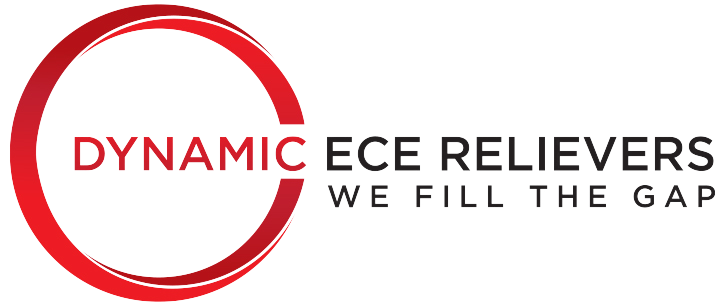Recently, the New Zealand Teaching Council announced a 113% rise in their annual teaching certification fee, starting February 2021 [1].
The certification is a requirement to become a qualified teacher, and the decision to raise the fee has sparked controversy throughout the ECE industry. Previously set at $220.80 for three years, the new fee would be $157 paid annually (totalling $471 over three years).
But who’s really behind these changes, and why are they happening? The Teaching Council is a board of 13 elected members aiming to promote the profession of the 100,000+ ECE teachers they represent. The Teaching Council, in a statement made earlier this year, highlighted concerns over quality as a reason for the fee increase. Despite the enormous growth of the Council, their certification fees haven’t risen since 2010. Financial reviews held in 2012 and 2014 concluded that the current fees could not properly sustain the activities of the Council, stating that without a fee increase, the Teacher’s Council would become insolvent by October 2017 [2]. Though fee increases were delayed thanks to $40 million in government funding, this expires in June of this year. Without the funding, teacher fees only cover 40% of the Council’s expenditure, leading to the proposed increase.

In January this year, the Teaching Council entered into a consultation with teachers over these changes, originally proposing an increase to $300-$600 for 3 years [2]. The consultation looked at 24,000 responses from teachers across the country (out of the 100,000 teachers the form was sent to). As an organisation meant to represent New Zealand’s ECE teachers, proper consultation was a necessary move. However, the Teaching Council’s decision to implement the fee increase contradicts the strong feedback received against it. Common responses to the consultation deemed the increases “unreasonable and unfair”, especially for beginning and part-time teachers, and enacted on “too short” of a notice period [1]. The lack of response to teacher feedback left many feeling frustrated and ignored.
In fairness, the Council has tried to make the increase more equitable by shifting the certification to annual payments. The hope is that by paying every year, the burden is taken off teachers paying large lump sums. However, complaints have arisen over the fact that it is not just a yearly payment, but also yearly paperwork, increasing teacher workload. Many teachers feel that this effort to spread out payments is not enough, especially now that the fees are more likely to be paid out of pocket. Though 70% of ECE centres currently fully subsidise teacher certification, a recent survey shows that only 13% will continue to do so with the new increase [3]. This is a particularly challenging struggle for smaller centres, who do not have the funds to cover the increased fee. As a result, much more of the burden is placed on the teachers.
Facing the prospect of paying fees themselves, many are considering leaving the industry. For a sector already struggling with teacher recruitment, this is a critical outcome. We want to be encouraging people to join the industry, not force them to leave it. The ECE community currently suffers from a shortage of teachers, with a 55% drop in students training for ECE teaching [4]. The increased certification fee would be particularly hard for these young newly-graduated teachers to pay, potentially driving them out of the industry. In this sense, the fees seem to damage the ECE’s sector’s potential for future growth.

If we reflect again on the idea of “quality” that the Teaching Council aims to promote, it seems a bit troubling that the new fees disproportionately affect new teachers and smaller centres. Many small centres have a boutique approach to childcare, continuing the high-quality tradition of ECE in New Zealand. Yet their small size means that they often lack the capital more profit-heavy corporate centres have to deal with costs such as this. Essentially, the rise in fees has the potential to hurt quality teacher-owned businesses the most.
The difficulties associated with the fee increase has sparked a protest on ActionStation, with over 30,000 signatories (a number larger than the 24,000 responses to the Teacher’s Council survey). Common reasons for signing include complaints over the added yearly paperwork, feelings that teacher opinions have been largely ignored, and lack of return [5]. Already faced with the challenges of operating under COVID-19, many feel that the fees are another ill-timed source of stress. The overall consensus is simple: teachers need to feel valued.
Given the contentious circumstances around the fee increase, is there a way for us to move forward? In response to both the Teaching Council’s need for funding and the widespread backlash from ECE teachers, the ECC has presented a list of potential solutions. Their suggestions include a phased increase in costs, further government funding, or developments within the Teaching Council to help them generate their revenue [3]. In essence, working to find avenues of funding that don’t shift the burden onto the teachers. Though no permanent solution has been chosen for the time being, ideas such as these certainly hold promise.
Sources:
[1] https://teachingcouncil.nz/news-advocacy/consultations/fees-consultation/
[3] https://www.ecc.org.nz/BlogPost?Action=View&BlogPost_id=557
[4] https://www.ecc.org.nz/Category?Action=View&Category_id=578
Further reading:
https://thespinoff.co.nz/society/15-05-2020/teachers-outraged-as-registration-fees-more-than-double/
ourActionStation protest:
[5] https://our.actionstation.org.nz/petitions/fight-against-doubling-to-teacher-registration-fees
